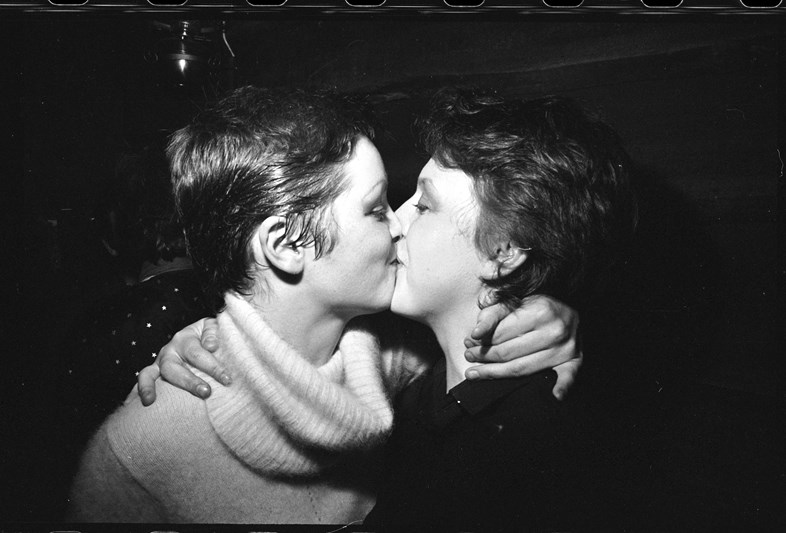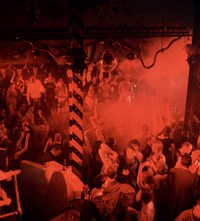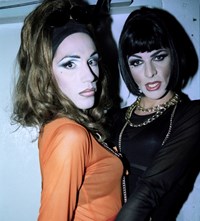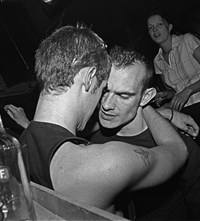Coinciding with Pride, a new exhibition in Manchester paints a vibrant portrait of the struggles and triumphs of the city’s LGBT community over the past 50 years
- TextDaisy Woodward
In October of 1991, PR guru Paul Cons launched Manchester’s first major gay club night – the now legendary Flesh at the Hacienda nightclub. His aim was to establish Manchester as the gay capital of the North, and suffice to say he succeeded. Flesh took place on the last Wednesday of every month, and was an instant hit, drawing in crowds from all over the UK.
“They’d all book the next day off work,” laughs Manchester photographer Jon Shard, who was commissioned by Cons to document the gloriously hedonistic evenings that ensued. “Every night was like a carnival,” he marvels, “There was so much colour, such amazing costumes, and all kinds of special events, like guest singers [including everyone from Take That to The Petshop Boys] and Miss Flesh, a drag queen version of Miss World.”
The launch of Flesh heralded a new chapter in Manchester nightlife: one that gave the city its ‘Gaychester’ nickname. “Previously most of the nights were run by gangs,” Shard tells us. “A lot of people had grown weary of it, so Flesh was a real breath of fresh air – for gay and straight people – and soon lots of similar nights cropped up. The Gay Village [area] opened up and became more mainstream, in a really positive, celebratory way.”
Shard’s intimate, up-close images, taken on the balloon-strewn Flesh dancefloor between 1993 and 1996, perfectly capture the spirit of the era. Clubbers perform for the camera with theatrical glee, while vibrant crowd shots embody the joyful revelry the night spawned. A selection of these works are currently on display as part of Queer Noise, a new exhibition at the People’s History Museum in Manchester, which looks to shine a light on the storied history of the city’s LGBT+ music and club culture. Spanning the 1970s, when gay bars remained secretive sanctuaries in the wake of the recent legalisation of homosexuality, through the alternative queer scene of the late 90s, the exhibition features contributions from Linder Sterling, Dick Jewell, Al Baker and more, and, in the build up to Pride, serves to paint a powerful portrait of the struggles and triumphs of Manchester’s gay community as it finally found the freedom to flourish.

Queer Noise: The History of LGBT+ Music & Club Culture in Manchester is at the People’s History Museum until September 10, 2017.















